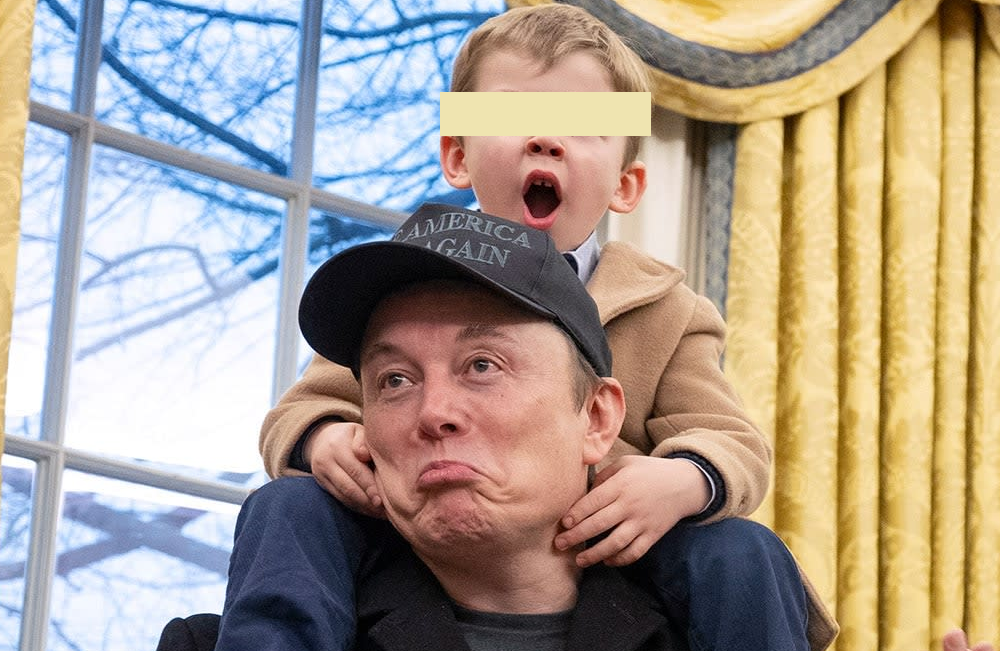Keir Starmer’s long road to recognising Palestine
The Labour government’s approach to Israel’s war in Gaza has soured the party’s relationship with many of its voters
David Sheppard FT SEP 19 2025
When David Lammy stepped down from the UN podium in late July having announced that the UK would recognise a Palestinian state, he received a standing ovation as he was embraced by the Palestinian delegation.
The then foreign secretary said the UK had a historic responsibility, stretching back to the Balfour declaration of 1917, which pledged the establishment of a Jewish state would not infringe on Arab rights.
But back home, most Labour politicians were more relieved than elated.
Labour’s long road to Palestinian recognition and its approach to Israel’s 23-month war against Hamas in Gaza have soured the party’s relationship with many of its traditional voters.
Following the declaration of famine in Gaza by a UN-backed panel, with Benjamin Netanyahu’s far-right government restricting food supplies, many Labour voters feel the war has become a stain on the party’s conscience and that Prime Minister Sir Keir Starmer’s approach has been far too timid.
“For lots of Labour voters, particularly Muslim voters, our response to the situation in Gaza has triggered a real break with the party,” said one cabinet minister. “And we shouldn’t expect them to come back.”
 |
| A UN-backed panel declared in August there was famine in Gaza © Abood Abusalama/Middle East Images/AFP via Getty Images |
The FT has spoken to the key players involved in Labour’s response to the crisis, mapping its journey towards Palestinian recognition. They paint a picture of a party often at war with itself, torn between its liberal internationalist roots and the demands of diplomacy in the age of Trump.
There remains a fragile hope within the party that the UK’s long-awaited recognition, often dismissed as a symbolic gesture as war still rages, might help bring about a peace deal and an eventual two-state solution.
“Now that the decision has been made we need to try and extract what we can from the situation,” said one Labour official.
Labour’s position on Palestine was shaped long before they were elected in July last year, with a manifesto commitment on recognition.
After becoming Labour leader in 2020, Starmer moved aggressively to rid the party of the toxic legacy of former leader Jeremy Corbyn, who had been accused of antisemitism during his frequent attacks on Israel.
“You went from a place where under Corbyn some Jews in the UK had their bags packed and ready to go,” said Michael Rubin, director of Labour Friends of Israel. “To this huge push under Starmer to reassure Jewish voters that Labour was on their side, and he understood their fears.”
One cabinet minister said Starmer had crafted a “brilliant and unequivocal stance,” on antisemitism. “But in our response to Israel it did sometimes feel like we were hamstrung by overhanging guilt for what happened during the Corbyn years.”
 |
| Former Labour leader Jeremy Corbyn was accused of antisemitism © Tolga Akmen/AFP/Getty Images |
The October 7 2023 attack, when Hamas killed 1,200 people in Israel and seized 250 hostages, affected Starmer deeply according to those close to him. His wife Victoria is Jewish and they have extended family in the country.
In their first meeting after the atrocities, Labour shadow cabinet ministers were unanimous that they had to stand behind Israel.
But there were caveats.
“Any country that had experienced that kind of horrendous attack would expect their allies to support them,” Emily Thornberry, then shadow attorney-general told the FT. “But we also agreed that Israel’s response, to maintain our support, had to stay within the confines of international law.”
Others, including former party leader Ed Miliband and then shadow health minister Wes Streeting voiced concern about Israel’s response.
“You could see in the language being deployed by Netanyahu’s government that they were laying the ground for the collective punishment of the Palestinian people,” one cabinet minister said.
As the offensive in Gaza began, Starmer backed Israel’s right to defend itself. But in one interview four days after the October 7 attack, Starmer made a catastrophic error.
Asked whether Israel’s siege of Gaza, cutting off power and water — a clear breach of international law threatened by Netanyahu — was “appropriate”, Starmer kept repeating his talking points.
“I think that Israel does have that right,” Starmer said. “I don’t want to step away from the core principles that Israel has a right to defend herself.”
Starmer later tried to clarify his comments. But the damage had been done.
“That interview was absolutely disastrous for how our approach to the war in Gaza was viewed — it spread like wildfire,” said one cabinet minister.
“Dissatisfaction among some Labour voters with our position quickly turned to horror — it made it look like Labour didn’t care about Palestinians.”
 |
| As the death toll rose in Gaza, pro-Palestinian protests gained momentum in the UK © Tolga Akmen/EPA/Shutterstock |
Israel’s offensive has killed more than 65,000 according to Palestinian health officials. As the death toll rose and Gaza was turned into a rubble-strewn wasteland, pro-Palestinian protests gained momentum in the UK.
Labour won a landslide victory at the general election last July as voters turned on the Conservative party. But four Labour MPs, including former shadow cabinet member Jon Ashworth, lost their seats to pro-Palestinian independents. Meanwhile Corbyn, running as an independent after being expelled from Labour, held on to his seat in Islington North.
“We came out of the general election with all of that hanging over us,” one cabinet minister said. “Some of us wanted to see an immediate move towards [Palestinian] recognition — but Keir wasn’t ready for a significant shift.”
Labour did not hit the ground running once in power. Starmer, a human rights lawyer, seemed trapped between the increasingly febrile politics of left and right.
He was dubbed a “pro-genocide” prevaricator by some on the left for his support of Israel and “two-tier Keir” by some on the right, who contrasted his robust response to anti-migrant protests with alleged soft-touch policing of pro-Palestine marches. Israel fiercely denies committing genocide in Gaza.
Labour lost its lead in the polls, with Nigel Farage’s anti-immigration populists Reform UK surging ahead.
Starmer’s government took some steps, such as restoring aid funding to the UN agency for Palestinians, UNRWA, and halting arms exports licences, although Israel can still access UK-made components for F-35 fighter jets from a global pool of parts.
But the election of staunchly pro-Israel Donald Trump as US President forced caution. Starmer calculated that building a close relationship with Trump was critical for the UK, putting his pledge to recognise Palestine on ice.
“Trump’s election didn’t just complicate things, it completely changed the focus,” said one senior Labour MP.
In June, the UK risked blowback from Trump by sanctioning ultranationalist Israeli ministers Bezalel Smotrich and Itamar Ben-Gvir. And as pressure mounted from Labour MPs, Lammy slammed the Netanyahu government’s calls to forcibly displace Palestinians as “monstrous” while Starmer described the situation in Gaza as “intolerable”.
After UN agencies warned of widespread starvation, calls for tougher action grew.
President Emmanuel Macron, during a state visit in early July, urged the UK to work with France to recognise a Palestinian state. Any discussions were derailed when Israel launched a 12-day war against Iran.
 |
| A protest outside the Foreign Office in London in late July © Vuk Valcic/Alamy |
By late July, YouGov polling showed a majority of British people no longer viewed Israel’s actions in Gaza as justified.
The Daily Express newspaper splashed its entire front page with a photo of a malnourished Gazan infant with the headline “For pity’s sake stop this now”.
“The most horrific images from the conflict have circulated for a long time in WhatsApp groups among those who care deeply about the conflict,” one minister said.
“Once they were on the front pages of national newspapers, suddenly we were inundated with messages from Joe Public.”
Macron then announced France would recognise a Palestinian state at the UN General Assembly in September, a move UK officials say “blindsided” them. Ministers in Starmer’s cabinet pounced.
“Anger in the cabinet, which had been simmering, boiled over,” said one cabinet minister.
Streeting, Miliband and the then justice secretary Shabana Mahmood all lobbied in favour of recognising Palestine.
UK officials say Starmer felt vulnerable having just faced a rebellion over welfare reform. They feared a vote on Palestinian recognition could be forced in parliament, putting Starmer’s credibility as leader at stake.
“Until that point, the line had held. But then panic set in,” said one official.
 |
| Sir Keir Starmer and French President Emmanuel Macron during a UK-France Summit in London in July © Yui Mok/PA |
Within five days of Macron’s announcement, Starmer held an emergency cabinet meeting. It was decided to recognise a Palestinian state in September, unless Israel met a series of conditions.
“I’ve always said we will recognise a Palestinian state as a contribution to a proper peace process,” Starmer announced. “This is the moment to act.”
Some Jewish Labour voters were furious, believing that recognition should only come at the end of a two-state process, not before, especially when Hamas still holds hostages.
“There’s a sense of being let down — betrayal wouldn’t be too strong a word,” said one Jewish community leader.
But some Labour officials argue the decision had a galvanising effect, with Canada and Australia set to join the UK in recognition, and Arab states calling for the first time for Hamas to disarm.
Starmer, who had consulted with Trump, has faced only minor pushback from the US president who acknowledged this week they “disagreed” on the issue while on a state visit to the UK.
Dr Simon Opher, a Labour MP who was stopped by Israel from entering the country this week, said that while he welcomed the government’s decision to recognise Palestine there was still a lot of frustration on the backbenches.
“I think that as a party we have come a hell of a long way since we got elected, but we’ve just always been slightly behind the curve,” Opher told the FT on Friday.
He added that there was likely to be pressure on the government to impose economic sanctions if Israel did not change course.
“When a country is committing genocide, we do not want to help them.”







